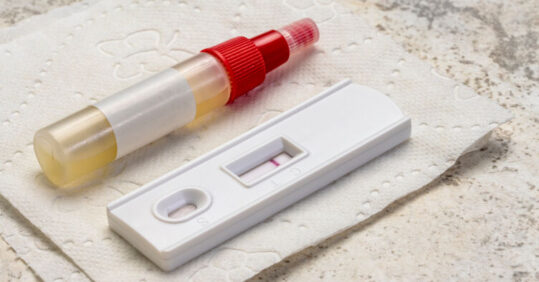Practices will be expected to provide a a faecal immunochemical test (FIT) to all patients with symptoms of colorectal cancer before urgent referral, following a final update to NICE guidance.
NICE estimates that the guidance will reduce the number of patients referred for colonoscopy by a quarter – avoiding 94,291 ‘unnecessary’ referrals per year.
The diagnostics guidance, which was consulted on in draft last month, recommends that only patients with a FIT result of 10 or more micrograms of haemoglobin in their faeces should be referred for further investigation on the urgent cancer pathway.
Related Article: Nearly one million global colorectal cancer deaths in 2020, estimates show
Previously this had been at odds with NICE’s existing cancer clinical guideline (NG12).
The guidance stresses that GPs should still refer patients, without delay, ‘if there is strong clinical concern of cancer because of ongoing unexplained symptoms (for example, abdominal mass)’.
NICE’s interim director of medical technology and digital evaluation Mark Chapman said the new guidance could help patients avoid having a colonoscopy where unnecessary and also ‘free up waiting lists to diagnose those more likely to have colorectal cancer’.
He said: ‘Colorectal cancer is the fourth most common cancer in the UK. These recommendations ensure we are balancing the best care with value for money, while at the same time delivering both for individuals and society as a whole.’
Related Article: Colorectal cancer: diagnosis and treatment
Last year, new guidance from the Association of Coloproctology of Great Britain & Ireland (ACPGBI) and the British Society of Gastroenterology (BSG) advised GPs to downgrade some urgent colorectal cancer referrals based on new FIT thresholds.
The guidance said that patients with a FIT test result below fHb 10μg Hb/g should not be referred via the urgent cancer pathway even if their symptoms fulfil NICE criteria.
Following this, NHS England urged all GPs to implement the guideline’s recommendations in full and said that GPs should manage certain patients with advice and guidance (A&G) from secondary care colleagues.
Related Article: Increase in people with learning disability being screened for cancer in past year, says NHS Digital
A version of this article first appeared in Pulse.



